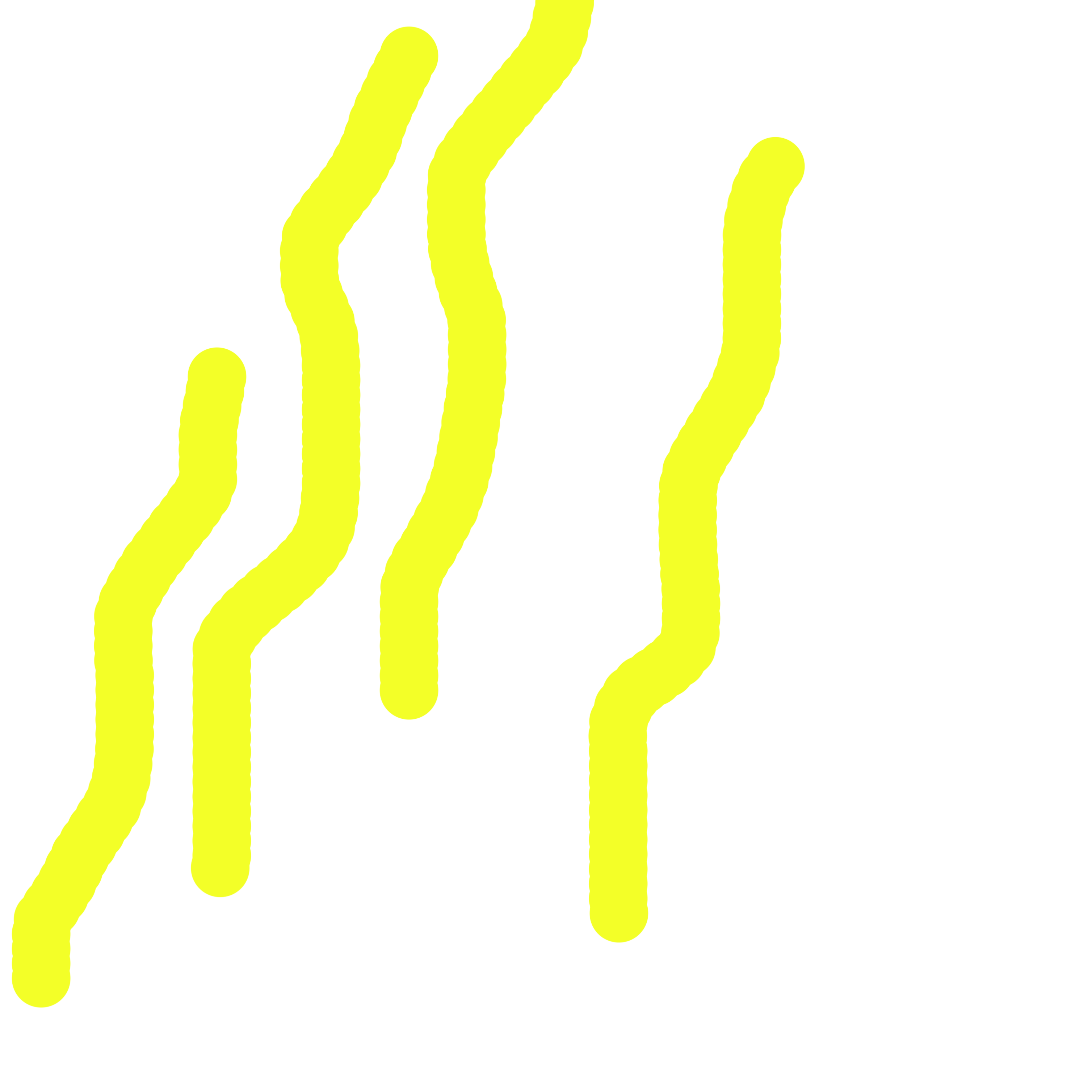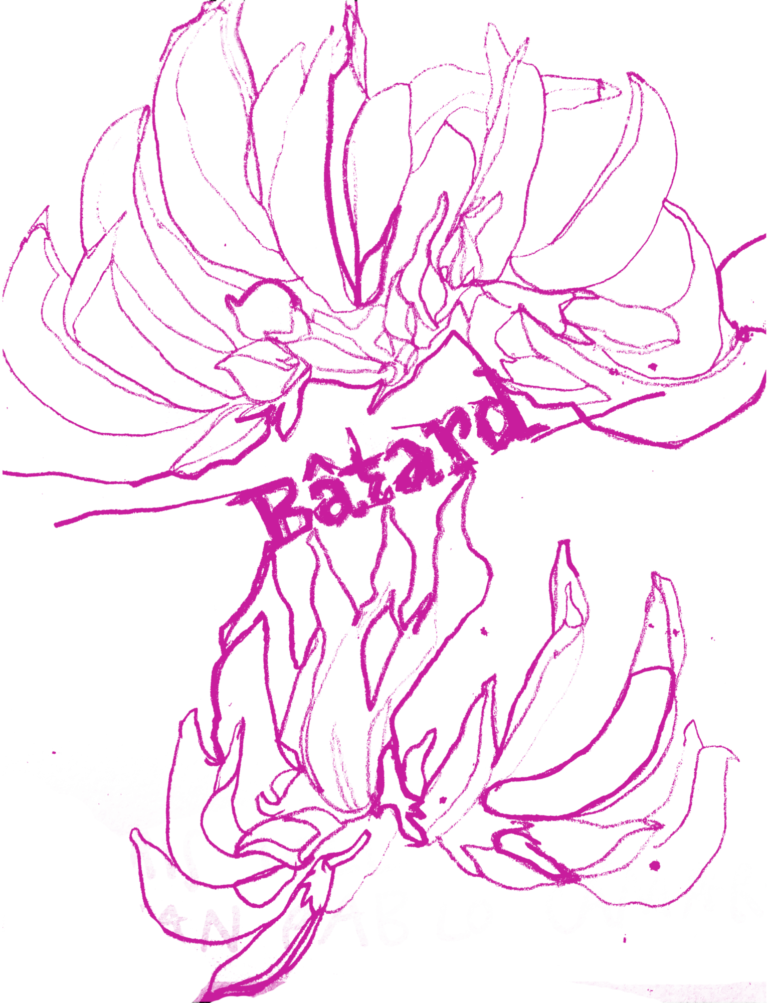
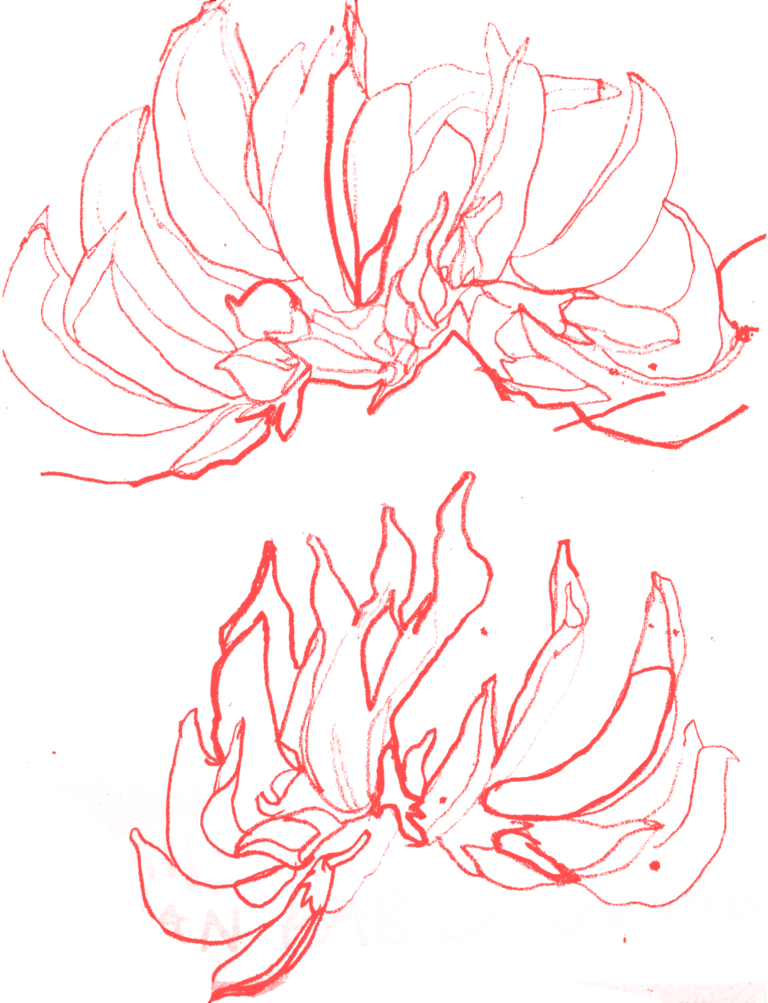
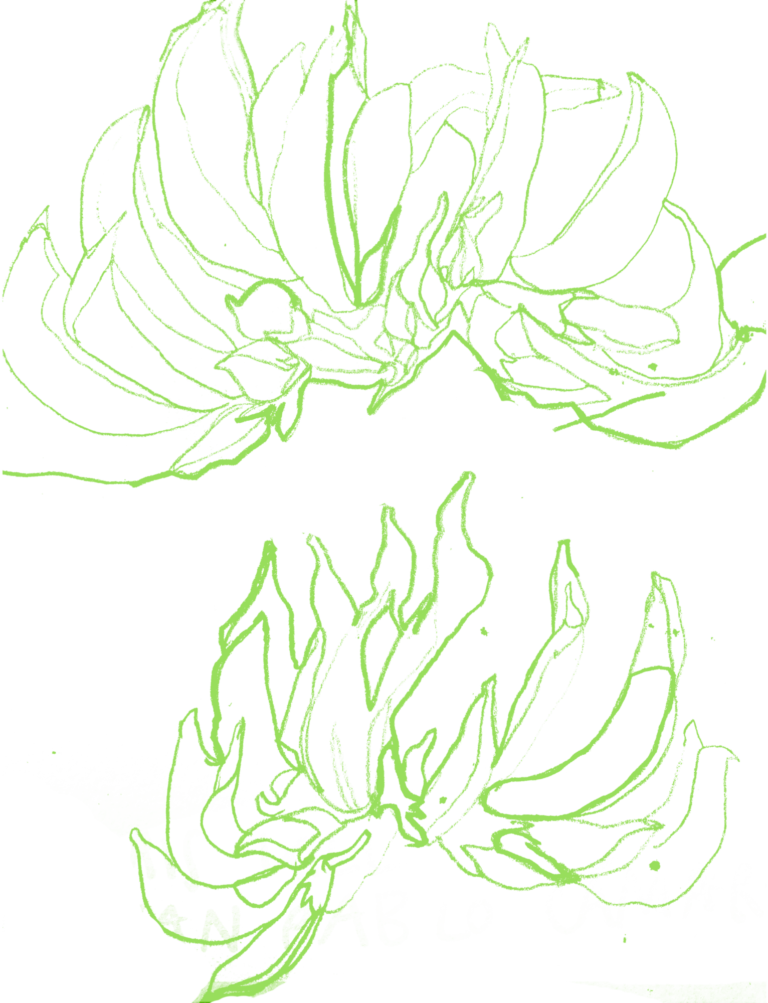
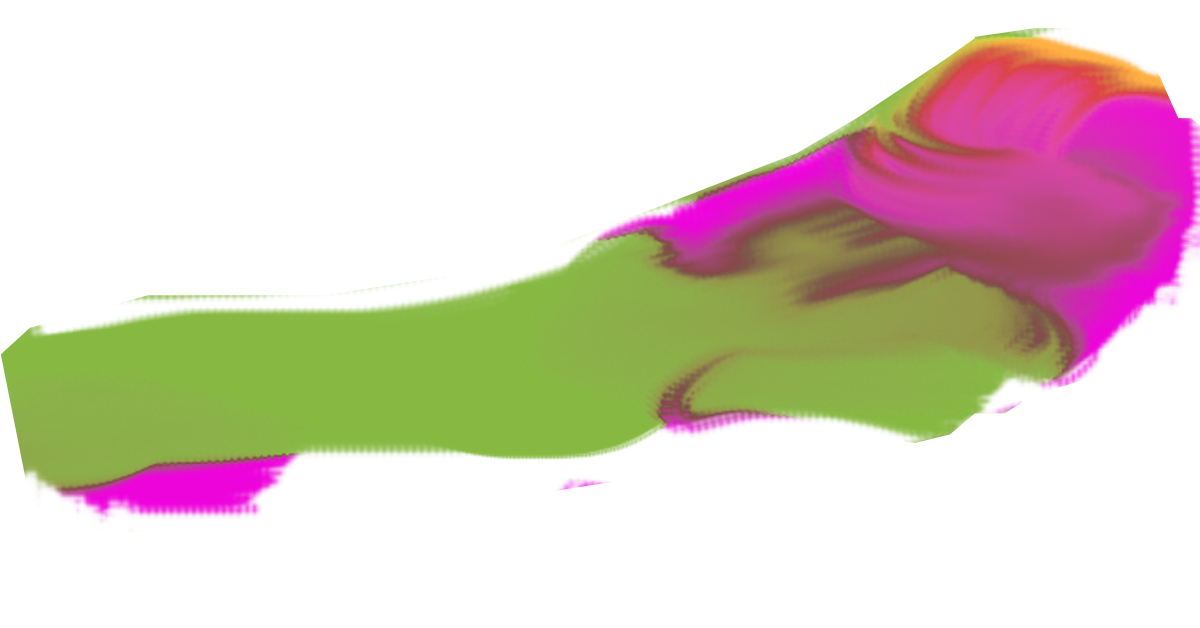
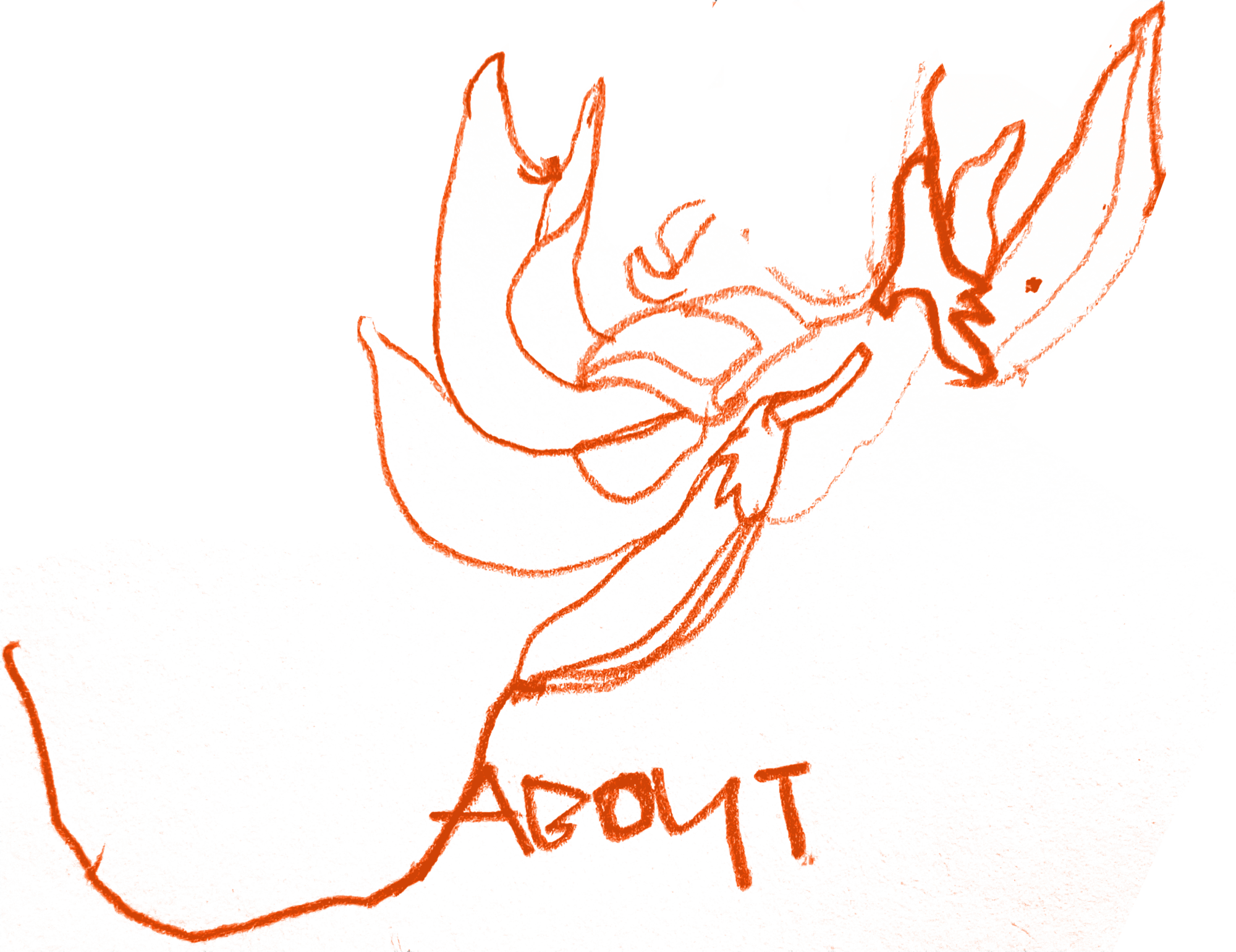
FIRST I WAS AFRAID I WAS PETRIFIED BÂTARD 2022
team
Sabine Cmelniski
was born and raised in Brussels. From tapdancing to learning taking dances and shiatsu classes, she has been hanging around dance and body practices since she was a little child. She studied Choreography in Amsterdam (SNDO) and during those studies, she created «Friends with Benefits», a platform exploring the notions of affective labour and friendship in the artistic practices. Besides, she worked as a dramaturg or performer with artists such as Oneka Von Schrader, Danae Theodoridou, Jija Sohn, Andrea Zavala Folache and Mercedes Dassy. She is currently completing a Master in Cultural Studies at KULeuven and co-curating Bâtard Festival (Brussels) with Bouchra Lamsyeh. She also works as a professor assistant in ISAC (Arts and Choreography department) at ARBA-ESA (Brussels).
Bouchra Lamsyeh
is a multidisciplinary artist (DJ and actress). She studied international public law (Université Paris VIII) and geopolitics (Institut Français de Géopolitique). Throughout the years, she collaborated with severals artists on projects with a strong societal impact requisitioning the access to artistic approaches (Manue Nicot, Max Waub, Hana Miletić, Jozef Wouters, Laïla Amezian, Esraa Warda, Laura Nsengiyumva, Aline Yasmin & Alex Cepile, etc.). Since 2019, she is co-directing the artistic programme of Bâtard Festival with Sabine Cmelniski. She is currently working on a seasonal program together with Johanna Couvée programmed at Kaaitheater starting september 2022.
Jara Vlaeminckx
studied contemporary dance at P.A.R.T.S. (Brussels) and Art History at the University in Ghent. She performed in Our Times (2016), Ends of Worlds (2019) and Dances of Death (2020) by Michiel Vandevelde. In 2016 she danced with ROSAS for a reenactment of Rain (2016) and Rosas danst Rosas (2017). In addition, she was/is a producer for Bâtard Festival (2016-2019), Precarious Pavilions #4 (2019), TheaterFestival (2019-2022), KASK Drama (2021-2022), company manager of A7LA5 vzw (2019-2021) and financial and administrative coördinator of Bâtard Festival (from 2020 onwards).
Martín Zícari
is an Argentinian writer and cultural worker based in Brussels. He studied Latin American History at the University of Buenos Aires and later obtained a PhD in Literature and Cultural Studies at KU Leuven. His work focuses on queer identity, imagination and fiction, affects, collective action and performance. Among others, he is the author of the short novel Scalabritney (Entropía, 2015) and the prized poetry book Del Principe Azul al Hombre invisible en una semana (EMR, 2018), and a collaborating artist in the collective The Place Where Clouds Are Formed, organising exhibitions in the US and Mexico to reflect upon borders, migration and belonging. He is interested in writing and cultural work as a way of creating and sharing knowledge in an alternative way.
Charlotte Smit
was born in Brussels where she pursued a Master’s degree in Cultural Management at Université Libre de Bruxelles. She gained a wide range of experience in the cultural sector through multiple working opportunities with a focus on music and events, including Bâtard 2021. An eager music listener still trying to figure out her latent creative talents, she seeks to engage in projects and events which aim at making the world a little brighter in any way they can with the help of arts and human connections. This includes projects by Espirito Mundo, Medeber Teatro and Ladale.
Ilvana Dizdarević
Feminist, DJ, daughter of Black Water and her Daughter, inspired by sound, light, dance, plants, her dog and terraskes. Likes to collect, produce, play and discover music, and roll cables. Grew up in Sarajevo, lives in Antwerp, where she has worked with Het Bos, Out of Sight, deSingel, wpZimmer, The Royal Conservatory Antwerp, Onder Stroom.
Andrea Zavala Folache
Andrea Zavala Folache is a choreographer, performer, visual artist and pedagogue. She graduated from SNDO (Amsterdam School of Choreography) and Ba Fine Arts at Complutense University of Madrid. Her work unfolds at the intersection of these two careers. The first contact with the body as a working tool comes from drawing, where the hand and the pencil become the engine of movement between the subject and the world; and from there her language crosses formats, sensitivities and feminist philosophies on cinema and painting to arrive at choreography as a support and container in which to experiment and study. How to consciously transcend form; Where does it happen, who enables it and by what means does the act of “creating”, “producing” and “working” pass? It is a choreography, understanding that it has the potential to change perception and connect with intuition, other layers of meaning and the ability to transmit them.
